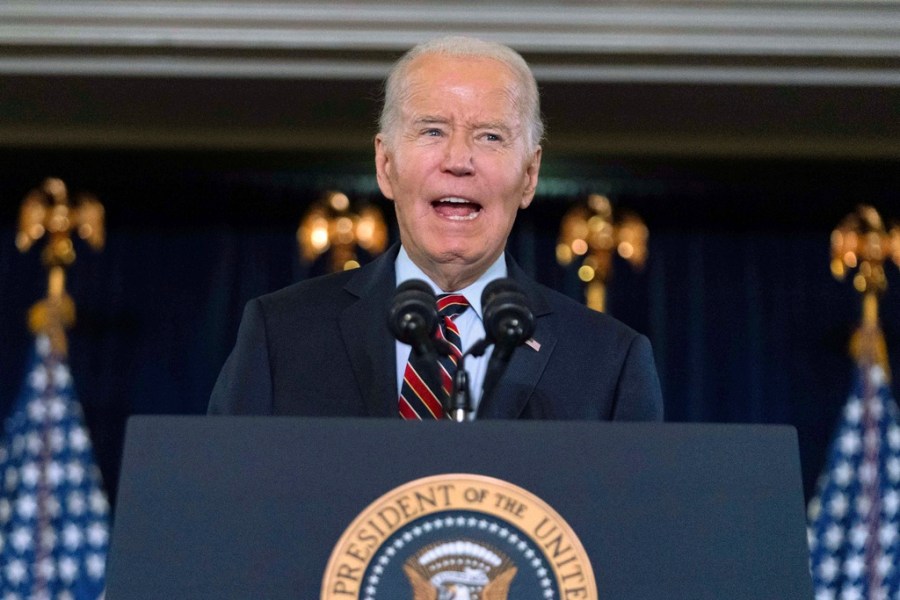
Federal judiciary leadership and some lawmakers are criticizing President Biden for vetoing a bill that would’ve added 66 new federal judgeships amid growing caseloads.
Biden on Monday made good on his promise to veto the JUDGES Act, which originally had broad support from both parties before it stalled until after the election.
The bill gradually would’ve added new federal judgeships in 13 states through 2035 in two-year waves. President-elect Trump’s victory meant that he would’ve been entitled to nominate roughly two dozen of the new seats over the course of his White House term.
Biden in his veto message suggested that caseload is “not the true motivating force behind passage of this bill now,” noting it would create judgeships in states where senators have sought to hold open existing vacancies in advance of Trump’s presidency.
“S. 4199 seeks to hastily add judgeships with just a few weeks left in the 118th Congress. The House of Representative’s hurried action fails to resolve key questions in the legislation,” Biden wrote.
Judge Robert Conrad, the director of the Administrative Office of the United States Courts, called Biden’s veto “extremely disappointing” and said the additional judgeships are “necessary for the efficient and effective administration of justice.”
“It is not a bill that was hastily put together. Rather it is the product of careful and detailed analysis which considers primarily the weighted caseload per active judge in each judicial district, while also factoring in the contribution of senior judges, magistrate judges and visiting judges,” Conrad said in a statement.
“This veto is a deviation from the long historical pattern of approving judgeship bills that awarded new judgeships to sitting Presidents. The President’s veto is contrary to the actions of Senator Biden who helped pass many of those bills,” Conrad added.
Conrad’s office is supervised by the Judicial Conference, the federal judiciary’s policymaking arm. The conference recommended the additional judgeships to Congress, spurring the introduction of the JUDGES Act.
The number of pending federal civil cases has risen 346 percent over the past 20 years, with roughly 82,000 cases pending as of March, according to data published by the federal judiciary.
The legislation unanimously passed the Democratic-controlled Senate in August but didn’t come up for a vote in the Republican-controlled House until this month, after Trump’s win. Biden threatened to veto the legislation, and it ultimately passed 236-173, with most House Democrats voting against it.
Following the election, judicial advocates pressed Biden to still sign the legislation, including the Federal Judges Association, which is chaired by Michelle Childs, a Biden-appointed federal appeals court judge who was rumored to be on the president’s Supreme Court shortlist.
Gabe Roth, executive director of Fix the Court, a judicial watchdog that endorsed the bill and is a prominent advocate for ethics reforms in the judiciary, said Biden’s veto “does his legacy no favors.”
“President Biden’s veto of the JUDGES Act is an embarrassing end to what has otherwise been a productive four years of his reshaping of the judiciary,” Roth said in a statement.
Sen. Todd Young (R-Ind.), who helped spearhead the bill, said Biden’s veto is “partisan politics at its worst” and went onto invoke the president’s pardon of his son, Hunter Biden.
“The President is more enthusiastic about using his office to provide relief to his family members who received due process than he is about giving relief to the millions of regular Americans who are waiting years for their due process,” Young wrote on X.












